Top 8 Django Books for Freshers & Experienced Django Developers
Python course with 57 real-time projects - Learn Python
We offer you a brighter future with FREE online courses - Start Now!!
In this Django tutorial, we will discuss top Django books that will help both freshers and experienced Django developers. Django web framework is a python native that is written in python. It takes less time for building web applications using out-of-box solutions provided by Django.
So let’s see some of the best books for Django learning. You’re off to a good start with any of these books, which are all designed to ease your way into Django world.
Best Django Books
Below is the list of top Django books for freshers and experienced Django developers:
1. Two scoops of Django for 1.11
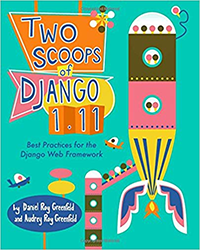 by Daniel Greenfeld’s and Audrey Greenfield
by Daniel Greenfeld’s and Audrey Greenfield
This Django book is a swiss army knife for every Django developers and covers best Django practices to follow while performing coding in Django to make code and project structure better.
It covers different aspects of Django from a developer perspective helping him in creating his Django projects.
It is easy reading with dense information and is essential for anyone who uses Django, whether they’re a beginner, intermediate, or advanced user.
2. Lightweight Django
This Django book gives you another look at how to use Django. This book shows experienced Django developers how to use REST APIs, WebSockets, and client-side MVC frameworks like Backbone.
js into new or existing projects. It helps in learning a lightweight approach for starting a new Django project.
Last few chapters of this book explain real-time updates across websites using Tornado. Django security, scalability and other similar topics have been nicely explained.
3. High Performance Django
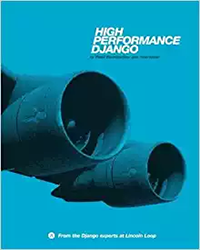 by Peter Baumgartner and Yann Malet
by Peter Baumgartner and Yann Malet
This is a pretty short but to the point book and doesn’t get into very much detail. It tells about developing heavy applications using Django.
This book explains how to measure things properly, optimize it accordingly and see the results and repeat this process.
There are lots of good practices that make this Django book an awesome read. Most of the tools used in this book are all open source that anyone can freely use.
4. Mastering Django: Core – The Complete Guide to Django 1.8 LTS
The author covered all the core aspects of this framework. It provides readers with details of the installation of python and Django and covers each concept from basics to advance level.
It quickly gets you started in Django development by answering the queries that a newbie in Django might have.
You will be able to learn the basics of the template system, how to use the Django authentication system and admin site and also helps in preparing codebase for production.
5. Django Unleashed
Django Unleashed is a step by step guide for beginners that demonstrates Django’s capabilities and its powerful library.
It covers features of Django and provides a working knowledge of Django with other frameworks.
The Django book covers topics like how to produce HTML with Django templates, MVC architecture, how to use Django’s URL patterns and views for creating dynamic web pages, how to troubleshoot in Django,
how to protect your site with user authentication and permissions etc. This book gives you a very solid understanding of how Django works.
6. Test-Driven Development with Django
If you’re a Django developer who has little or no knowledge of test-driven development or testing in general, this book is best for you as it covers test-driven development techniques with Django.
It covers concepts like the difference between functional and unit testing, how to use RequestFactory and TestClient in Django, test integration with external APIs,
how to use other tools like VCR and Django Rest Framework etc.
The Django book makes complex software tasks easy with its feature to solve problems into layers. The testing tools in Django and Python make test writing fun, and the whole coverage test suite from TDD is helpful to any project.
7. The Definitive Guide to Django: Web Development Done Right
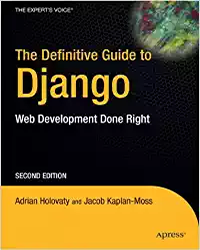 by Adrian Holovaty and Jacob Kaplan-Moss
by Adrian Holovaty and Jacob Kaplan-Moss
This Django book is a comprehensive guide for Django beginners and intermediates and covers Django fundamentals like installation, configuration and Django deployment, features of Django,
like outputting non-HTML content like RSS feeds and PDFs, plus caching and user management and Django’s configuration options and commands.
It also covers how to build web applications using Django that includes the basics of dynamic web pages, the Django templating system interacting with databases, and web forms.
8. Django for Beginners: Build websites with Python and Django
As the name suggests, this book is for beginners who want to learn django and developer career in this framework.
It covers concepts like Django basics, templates and URLs, class-based views, user authentication and permissions, Django deployment and testing, and basic projects in Django.
The Django book includes topics like Initial Setup, Hello World app, Pages app, Message Board app, Blog app, Forms, User Accounts etc.
Summary
In this article, we have seen the best Django books that you can refer as per your requirement. The description of books will help you to understand which book you should read at which level of your learning. Hope it ends your search for Django books now.
Furthermore, if you have any queries or feedbacks related to Django books article, you can enter in the comment section.
We work very hard to provide you quality material
Could you take 15 seconds and share your happy experience on Google
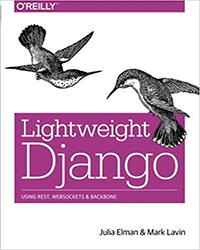

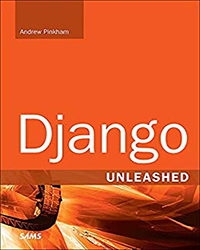
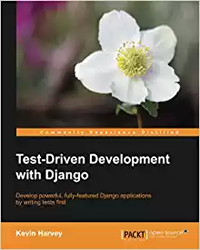
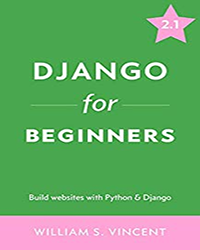


Are you saying that Django 1.11 is still relevant at this time when Django 3 is already released? Can someone learn with very old version ?
Thanks all.
That’s the book edition number not django version
No it’s not, it’s on Django version 1.11, but it’s a very highly regarded book. Note that Django 1.11 is an LTS release supported until April 2020.
but I cannot buy them from a Chinese e-commerce website.